In Uganda, an estimated 95% of maize flour is produced by small and medium-sized maize hammer grinding machine. Pingle has delivered many high-quality mill machines to Uganda and has received high praise. You are welcome to join and consult.
Our customers are very satisfied with our maize mills because our maize mills can meet almost all of their needs. Our maize mills can be customized according to your specific requirements. In addition to high-quality machines, we offer prompt delivery, skilled technical guidance and excellent after-sales service!
We undertake turnkey projects for maize/corn flour mills from 10TPD to 500TPD. We also offer customized maize flour mills according to the unique needs of our clients. As one of the best manufacturers and suppliers in the flour milling field in China, we are always available to supply maize milling equipment to markets around the world. Of course, our technical team also helps our customers to design plant floor steel silos, cement silos and necessary auxiliary systems for their maize milling projects.
Make corn into corn flour efficiently and quickly
Corn mills can be categorized into small, medium, and large according to production capacity
Ideal for home use and profitable business
Corn milling machine has the advantages of high quality, low price, simple design, compact structure, low power consumption, low noise, simple operation, easy maintenance, and long service life
Advanced integrated components: integrated technology for producing high quality corn products. Flexible processing maximizes yield through efficient cleaning, conditioning, de-embryoing through to final milling.
Technology and automation: reliable automation increases productivity, reduces energy consumption and minimizes maintenance. Automation contributes significantly to the efficiency of a corn mill.
Expertise and process know-how: We continuously optimize our solutions from individual machines to the entire process. Expertise and extensive experience ensure customer support at every stage of the process.
Easy installation and small footprint.
Can produce corn meal and grits in a wide range of sizes.
A complete solution provider for corn processing: a leading provider of milling solutions for traditional products such as corn grits, primary corn meal, secondary corn meal and specialty corn meal. PINGLE integrates engineering, R&D, manufacturing, sales and installation services, providing corn flour milling equipment suitable for small-scale flour milling enterprises and large-scale commercial corn flour milling plants
Maize and wheat are already grown in many parts of Uganda. Raw materials are available at reasonable price levels.
Secondly, consumer taste for maize flour and wheat flour is already high. Consumer demand for maize flour has increased due to increase in population.
Thirdly, the operation of running a corn flour milling plant is not very complicated. The machines used in the factories are durable and workers can work after some training.
Fourthly, all traders in Uganda can engage in the milling business. The only requirements are flat land and access to electricity. Maize and wheat raw materials can be easily obtained from the local villages. The final product is packaged according to your needs (1kg-5kg-10kg-50kg) no problem.
Small maize processing plants, which account for 85% of the total number of processing plants, are scattered throughout the countryside and mainly process maize according to the user's requirements, with a processing capacity of less than 10t/d and process 50% of the total maize processed in the country, with locally produced, poorly efficient and maintained processing machines, resulting in the processing of low-quality maize flour; the daily production level of this type of plant depends on the availability of electricity, the type of machine and the market demand. The level of daily production in this type of mill depends on the availability of electricity, the type of machinery and market demand.
Medium-sized maize mills account for less than 15% of the total number of mills and are mainly established in urban agricultural centers. With a processing capacity of about 50t/d, they produce maize under contracts with institutions and urban traders and process about 30% of the total maize processed in the country, with machinery similar to that of small maize processing plants and using outdated processing technology. They are involved in corn storage, but the amount stored is affected by limited storage space and working capital, and their level of profitability depends on their inventory strategy and control of overhead and operating expenses.
The large maize processing mills, which account for less than 2 percent of the total number of mills and are mainly located in the capital city of Kampala, supply maize flour mainly to the relevant agencies (especially the international relief agencies), process 20 percent of the total maize processed in the country, and are equipped with modern large-scale processing machinery and large warehouses and batch handling systems. Buying and storing maize in the peak season
The main mode of profitability is to buy and store maize kernels during the peak season and sell maize flour during the off-season.
There are three types of maize flour milling technology in Uganda: stone hand mills (or pestles and mortars), diesel/electric motor driven hammer mills, and power stick mills. Stone hand mills (or pestles and mortars) are used mainly in remote rural areas. Diesel/motor-driven hammer mills with or without dehullers are the dominant maize processing technology in Uganda; these machines and parts can be manufactured locally in Uganda; their simple production process, low cost inputs, and the ability to process the fine flour preferred by consumers make the technology favored by processors, but produce flour that is less nutritious and risks contamination by mixing with hammer shavings, and are not energy efficient. Power wheel mills, generally used in large-scale processing plants, dehull corn kernels before milling them into flour, produce a relatively coarse, more nutritious flour, and the technology is more energy-efficient.
In Uganda, the distribution of maize flour factories is closely linked to agricultural production, transportation networks and market demand. Large-scale factories are usually located in areas with good access to transportation and close to major markets, while small and medium-sized factories are more widely distributed across several rural areas. Specifically:
Kampala, the capital city: As the political and economic center of the country, Kampala has good infrastructure and large market demand, especially Katwe's proximity to Kampala's city center, which has attracted the establishment of large maize flour factories for processing plants oriented to urban demand, which can respond quickly to market changes and meet the needs of urban consumers. These large factories will not only serve the domestic market but may also export maize meal to neighboring countries.
Jinja: Located on the shores of Lake Victoria, Jinja is an important industrial city in Uganda. With a well-developed industrial base and easy access to water transportation, Jinja is the location of choice for a number of medium-sized maize meal factories.
Mbarara (Mbale): Located in eastern Uganda, Mbarara is the commercial and administrative center of the region. Due to its proximity to Uganda's grain producing areas, Mbarara is also an important cluster for the maize meal processing industry.
Mbarara: Located in the southwestern part of Uganda, Mbarale is the main city in the region. Agricultural activities around Mbarara are very active and provide the raw material base for the local maize meal processing industry.
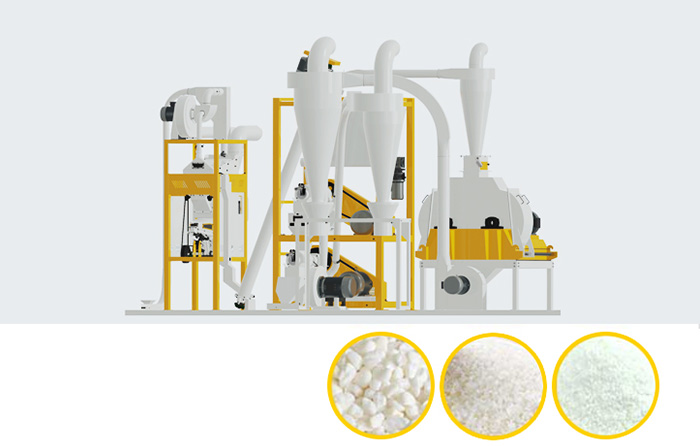 | 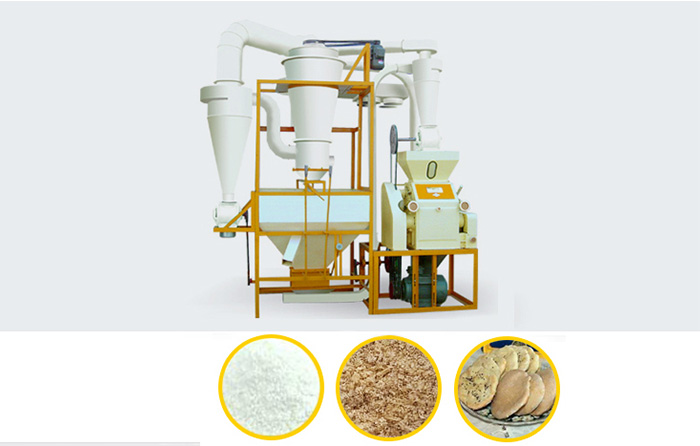 | 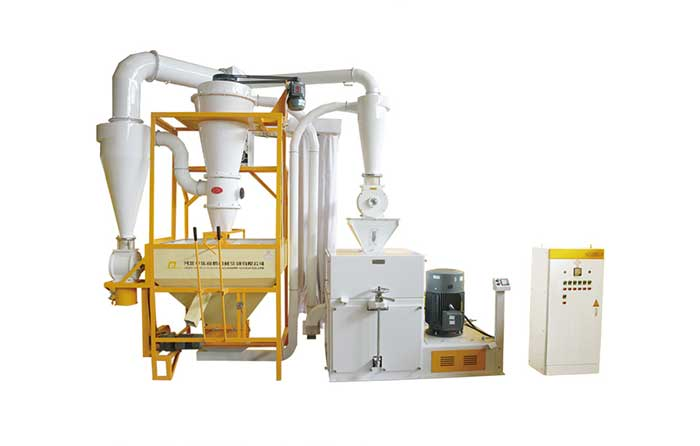 | 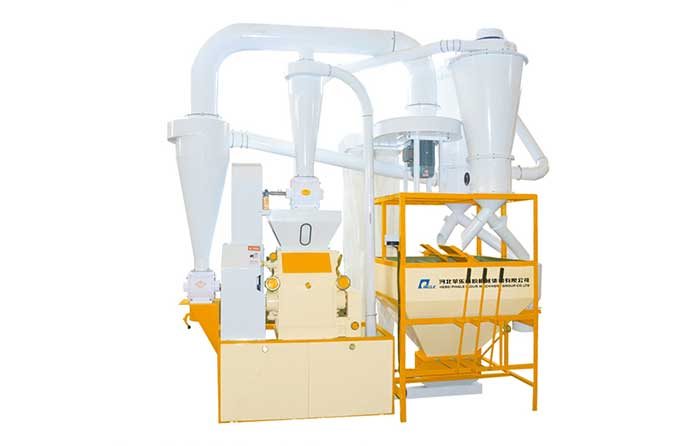 | 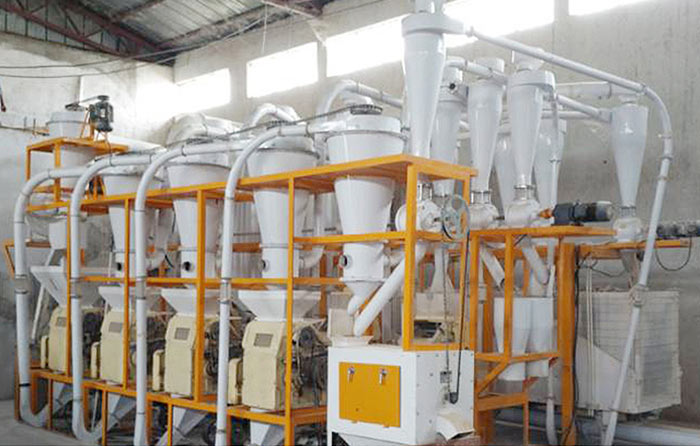 |
| 10t/d Maize Milling Machine | 20ton Maize Milling Machine | 50ton Maize Milling Machine | 60ton Maize Milling Machine | 80ton Maize Milling Machine |
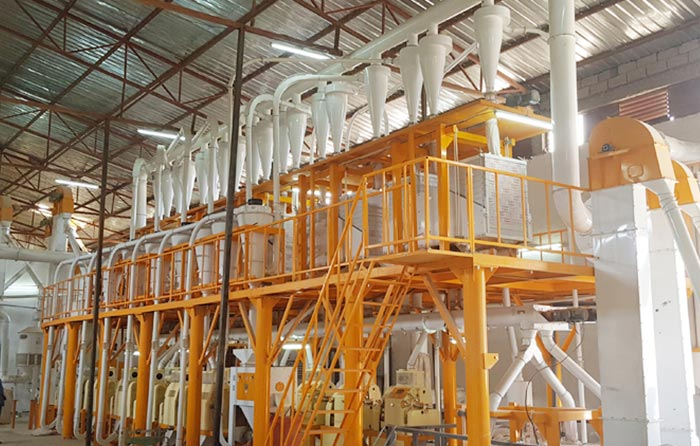 | 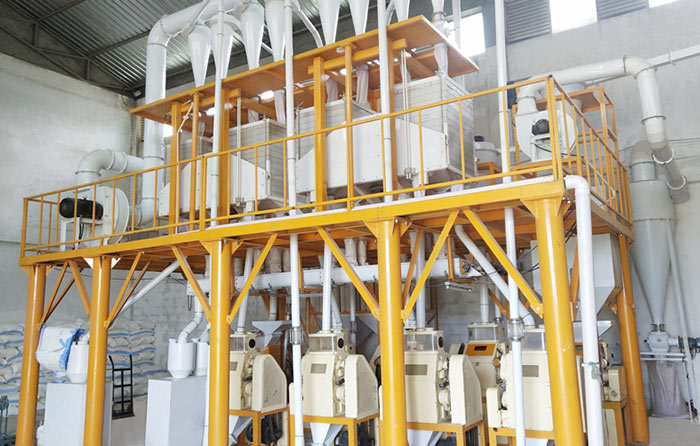 | 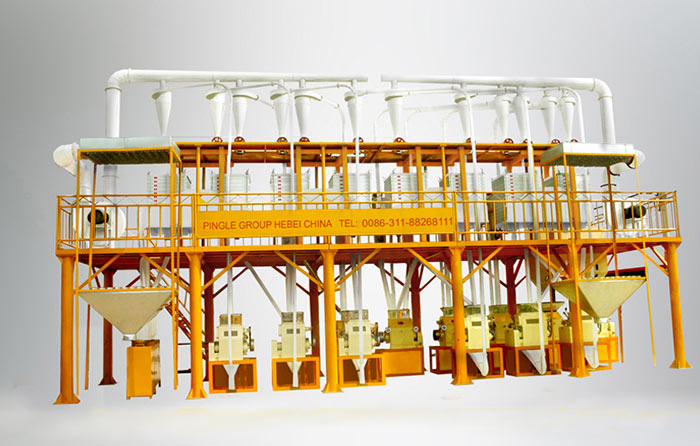 | 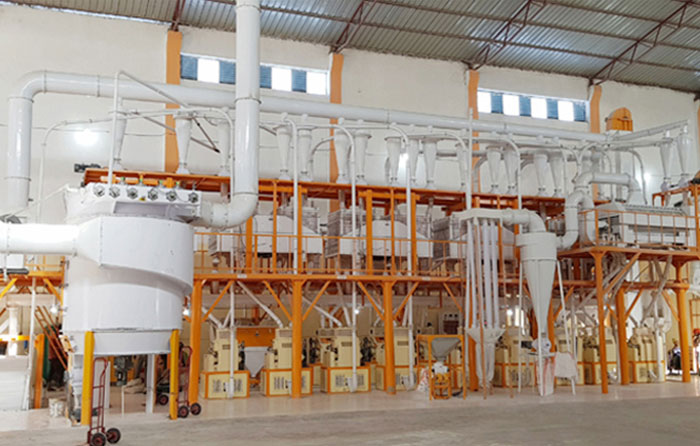 | 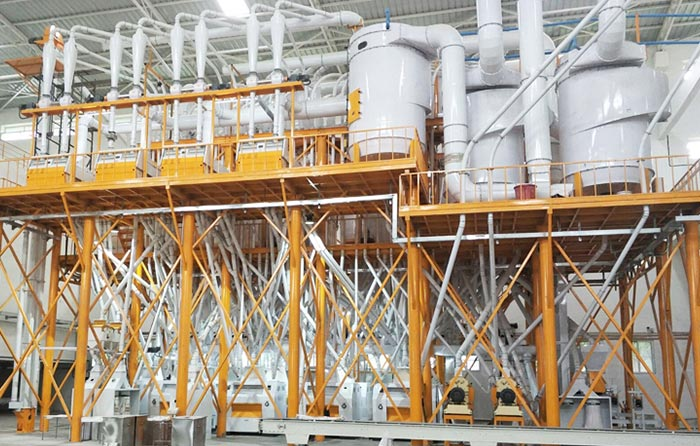 |
| 100ton Maize Milling Machine | 120ton Maize Milling Machine | 150ton Maize Milling Machine | 200ton Maize Milling Machine | 500ton Maize Milling Machine |
Improve processing efficiency and quality:
For small and medium-sized maize milling plants, as these manufacturers account for the majority of the total processing in the country, and the current use of machines with poor efficiency and maintenance, resulting in the processing of maize flour of low quality. Therefore, PINGLE is able to improve processing efficiency and finished product quality, easy to maintain and adaptable modern milling equipment. This may include high-efficiency hammer mills with consistent performance (with better peeling and cleaning systems), automated packaging equipment, etc.
Technology updates and process improvements:
For large maize milling plants, although they already have modern processing machinery and large warehouses, there is still room for improvement, such as the introduction of more efficient, energy-saving, environmentally friendly and up-to-date processing equipment with the latest technology, such as improved power wheel mills, and advanced automated control systems for optimizing the production process and improving product quality.
In addition, the introduction of more advanced storage technologies and equipment could be considered to improve storage conditions, extend the shelf life of maize kernels and flour, and reduce losses, and PINGLE can provide maize milling equipment that is high quality, high performance, more energy efficient, environmentally friendly, and with a long service life.
Safety and nutritional improvements:
Especially for small and medium-sized mills, where there is a risk of contamination from hammer shavings, PINGLE corn milling equipment offers better safety protection and advanced milling technology to achieve milling yield goals efficiently and safely.
PINGLE specializes in maize milling equipment that will help you improve the efficiency and quality of your maize milling process, update your technology and improve your processes, and increase safety and nutritional value. For all sizes of plants, we can select the right equipment and technology for your specific needs and conditions to ensure the sustainability and competitiveness of your maize milling plant.
Maize flour milling business is the process by which food and agricultural products are produced as manufactured goods and sold for consumption as manufactured goods. Flour milling business will never go out of business because with such a huge customer base, food is essential. Of course we also need to understand the cost of setting up a maize flour mill to start a flour business
Before starting a corn maize flour milling business, you need to research the competition in the market, sort out the type of flour milling business, cost of machines, cost of licenses, marketing strategies and costs, and so on. In addition, write a business plan that includes a business description, executive summary, financial details and legal entity (sole proprietorship, LLC or partnership)
What affects costs
Find a suitable location, taking into account a good road network conducive to easy access to the maize market and delivery of the finished product.
This is a product that is in high demand and can bring in the profits you so desire.
Obtaining a government license will increase your customers' confidence in your product and they will be assured that they are consuming a high quality product that is well packaged.
Getting enough financial backing to establish and track the local market you intend to supply as this in turn will help you make huge profits and customers.
The structure and layout of your maize milling plant will include processing units and storage units for raw materials and finished products. The more storage space you have, the more products you must have to fulfill the needs of your regular and potential customers.
Investing in high quality maize milling equipment is the way to go as it will help you avoid unexpected problems and costs that may arise during installation and production.
A maize flour mill business is an easy and cost-effective business to start. You cannot determine the profitability of a maize flour mill business, but you can speculate based on the cost of production. If it is a small maize flour mill business, it will not generate as much revenue as a large maize flour mill business. However, once the cost of production is reduced, the profit margins will be high.
Maize is an important crop grown in many countries around the world and can be processed into many products for human consumption, including maize grits, maize/corn meal, etc. Among them, maize flour and maize grits are the most common maize products.
And in Uganda, maize processing is big business as maize meal is an important staple food for most households, removing the maize bran from the grain and then selling it to retailers and other markets in Asia Pacific, Gulu and Masindi . According to statistics, there are several towns in Uganda suitable for growing maize. Busoga and Mubende are the largest maize growing areas in Uganda. To name a few of these regions: Kampala, South Lira, Kayunga, Kamuli, Tororo, Busia, South Mbale, etc.
There are two main reasons for opening a maize processing factory in Uganda: personal use or business purposes. Understanding the purpose of a maize flour mill can help you understand what you need to achieve high yields. Commercial corn flour mills can produce human food, industrial starch, or animal feed. How to start a maize processing plant is influenced by many factors.
As part of the maize value chain, factories, most of them small, have been established across Uganda. 2018 was a very scary year for some farmers who had no mechanism to store grains or sell their flour for processing as a kilogram of maize was sold for around Sh200. Therefore, the maize processing business is becoming more and more important in Uganda.

The maize milling industry is vital for Uganda's agriculture and economy. With a growing population and abundant maize crops, milling machines are essential for processing maize into flour. This article explores Uganda's maize milling industry, from the types of milling machines available to investment opportunities.
First, you should find and secure a reliable and viable maize supplier within your budget. At this stage, a contract must be signed between the maize flour mill and the maize supplier. It would be disappointing to encounter legal problems after setting up a flour mill.
Secondly, obtain a business and processing site. Flour mill machinery requires a wide surface area, especially for storage purposes. This site is where finished goods and raw materials are stored (most certainly in silos). Ensuring the best possible site requires consideration of electricity and water connections, as well as safety and health standards. Ideally, an efficient cornmeal processing plant has a three-phase electrical connection and should follow established construction and safety standards. Otherwise, you risk losing a significant investment.
The price of a corn mill can vary depending on a number of factors including the make, model and size of the machine. Generally speaking, the larger the machine, the more expensive it will be. However, larger machines are also more efficient and can produce more cornmeal than smaller machines. Additionally, the cost of ancillary equipment such as screens, cleaning machines, and packaging machines should also be considered when calculating the total cost of ownership.
At PINGLE, we have a wide selection of corn mills to choose from, each priced according to its unique features and capabilities, with specific pricing depending on model and size. Rest assured, every machine we sell is carefully designed and manufactured with superior quality control to ensure optimal performance.
The third is to purchase high-quality flour milling equipment and establish maize flour and grits processing plants. Even if you have a small budget, it is best to avoid purchasing old and inefficient equipment as this will become a big problem for further maize meal production. Collect more information about maize flour mill manufacturers and suppliers, and then choose a reliable and reputable company to help you build your own maize flour processing plant with the lowest investment cost possible.
In Uganda, there are different types of maize milling machines, from traditional manual ones to modern electric models. Electric machines, in particular, are popular for their efficiency in processing large amounts of maize. Entrepreneurs have access to a variety of maize milling machines at competitive prices, making it easier to start milling businesses.
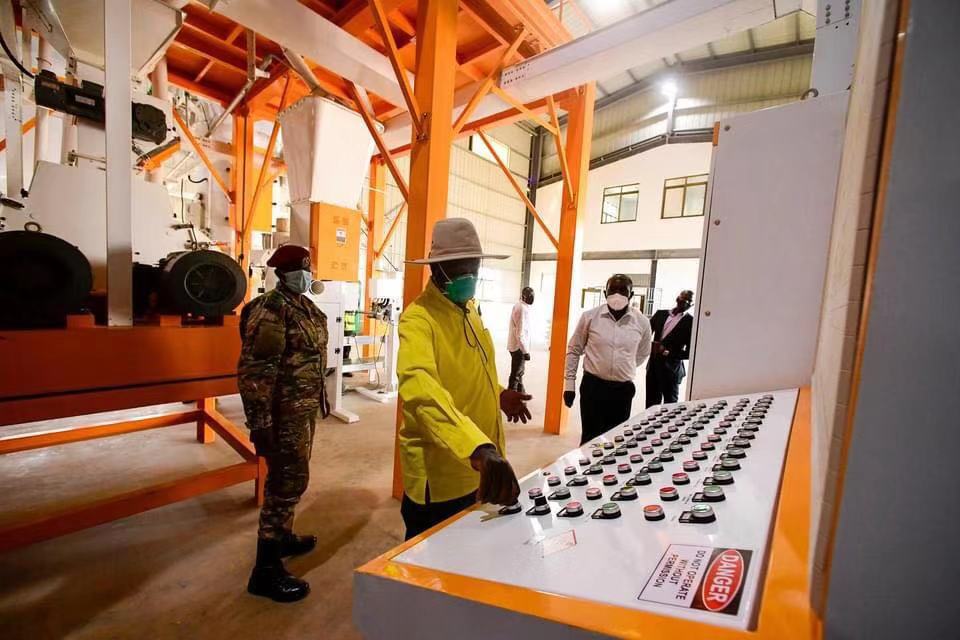
Now that you have a high-quality and stable supply of maize, as well as a suitable location and a complete maize processing plant, you should ensure that your product meets national standards. Therefore, the maize flour milling process is very important. This is a four-step process that requires you to gather advice from the appropriate agency or government personnel. The first step is to contact a food technician in Uganda. A skilled professional will guide you through what the law expects of this type of business and what to avoid.
After that, register your flour mill with the Uganda Business Registry. Business registration is not complicated and requires only the company name, any products or brands and any relevant information. If you can do this, you're on the right track and it won't be long before your plant is fully operational. The final tip is to obtain product certification approval. When your product is ready, conduct separate testing with a reputable laboratory and ensure that your finished product is suitable for human consumption. Finally, successfully manufacture and launch your product.
Starting a maize flour/meal processing business in Uganda is as easy or difficult as any other investment, your effort is what counts. Guaranteed that you have the capital, staff and machinery you need, you can start your business now. All things considered, don’t forget to maintain quality and attractive packaging. If you have any questions about maize flour milling, such as equipment models, prices, etc., you are welcome to contact us and we will give you feedback as soon as possible!
Seeking help from the National Agricultural Research Organization (Naro), you may realize your dream
Site selection and construction should meet quality and safety standards. You will need to consult a food technologist to help you determine the required standards under the guidance of the Uganda National Bureau of Standards (UNBS). These standards provide you with a set of requirements needed to produce products suitable for human consumption. Register your business with the Uganda Registration Services Bureau (URSB) as well as the Uganda Revenue Authority (URA), the National Chamber of Commerce of Uganda, municipalities and the National Social Security Fund (NSSF). After the machine is installed, product samples are made and sent to accredited laboratories such as Uganda Industrial Research Institute (UIRI) or UNBS, where chemical, physical and microbiological analysis is carried out on the samples. This helps you apply for product certification.
In Uganda, an estimated 95% of maize flour is produced by small and medium-sized hammer mill operators. Pingle has delivered many high-quality machines to Uganda and has received high praise. You are welcome to join and consult.
On December 1st, 2020, a significant milestone was reached in Uganda's agricultural sector as President Yoweri Museveni inaugurated the Uganda Busia Food Processing Complex Project, a collaboration with Pingle Group. Accompanied by Wu Quanyou and Hao Qi, leaders of our project department, President Museveni toured the grain drying, maize milling, and maize mill production lines. Impressed by the quality and efficiency of the maize milling machine, President Museveni commended Pingle Group for its dedication, especially during challenging times like the pandemic, ensuring timely construction progress. Situated in the bustling city of Busia, the complex stands as a testament to Uganda's commitment to enhancing market infrastructure and agricultural trade under the Market and Agricultural Trade Improvement Program. It encompasses maize flour drying, storage, maize processing, maize feed production, and ancillary facilities, signifying a comprehensive approach to agricultural development. The completion of the Busia Food Processing Complex Project, a testament to Pingle Group's prowess, marks a significant contribution to Uganda's food processing capabilities.
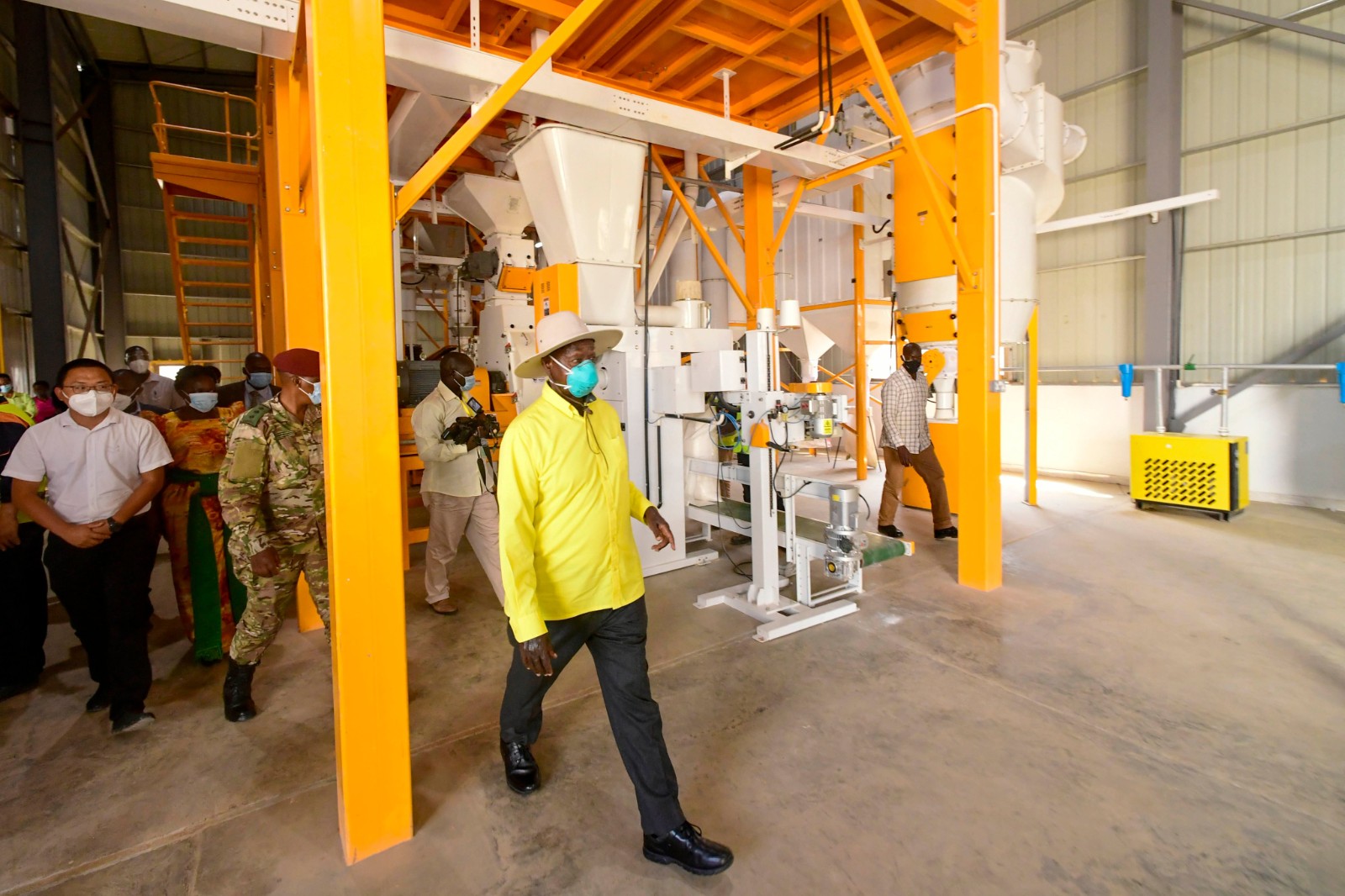
In the dynamic landscape of Uganda's corn flour milling market in 2024, the demand for efficient and cost-effective maize milling solutions has never been higher. With the prevalence of small-scale maize milling businesses and the government's initiatives to promote agricultural processing, electric maize milling machines have emerged as essential assets for entrepreneurs seeking to enter or expand in the market. However, amidst considerations of the electric maize milling machine price in Uganda, the cost of maize mills remains a crucial factor. As entrepreneurs weigh their options, the availability of maize milling machines for sale in Uganda, including small-scale models tailored to local needs, is pivotal. Pingle Group's expertise in providing high-quality maize milling machines, coupled with competitive pricing and reliable after-sales support, positions it as a preferred partner for businesses navigating the maize milling machine market in Uganda. With a focus on innovation, efficiency, and affordability, Pingle Group continues to drive progress in Uganda's maize milling industry, meeting the diverse needs of its customers while contributing to the country's economic development.
Copyright © Hebei Pingle Grain Technology Intelligent Equipment Co.ltd. All Rights Reserved | Sitemap | Technical Support: 